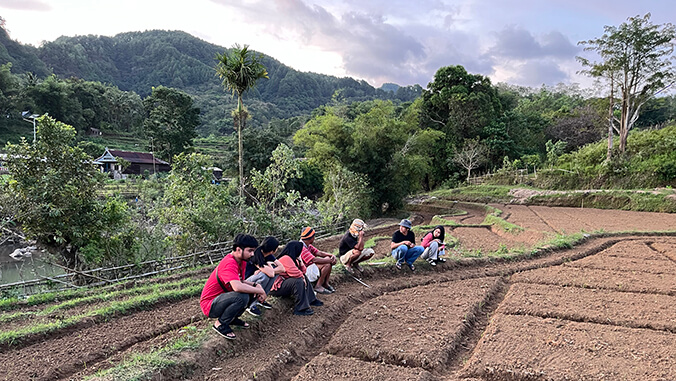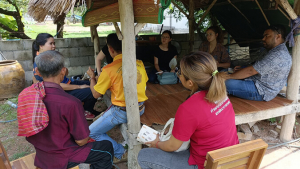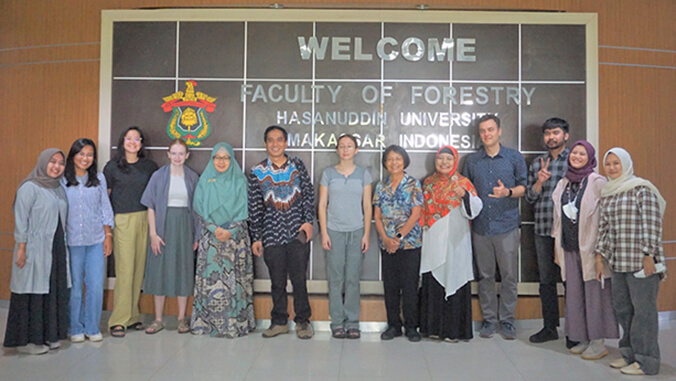
Eight students from the University of Hawaiʻi at Mānoa recently wrapped up travels to Thailand and Indonesia for a six-week field school program that explored the dynamic socioeconomic and environmental shifts in rural Southeast Asian societies.
The Collaborative Southeast Asia field school, funded by the Henry Luce Foundation’s five-year grant, aims to foster a new generation of scholars working in the region and to engage them with local partner institutions. A mix of undergraduate and graduate students from UH Mānoa collaborated with their counterparts from Southeast Asian universities, such as Khon Kaen University (KKU) in Thailand and Universitas Hasanuddin (UNHAS) in Indonesia, for a two-week cross-cultural fieldwork experience in rural Southeast Asia. This unique opportunity allowed students to work in diverse teams and exchange approaches to field-based and experiential learning.
“The reason why we feel strongly about field-based learning, you don’t just learn about the place cognitively, but also affectively. You can smell the place, you can empathize with people working in agriculture, and you can hear the voices of the community members that are subject to agrarian change,“ said Krisna Suryanata, field school director and faculty member in UH Mānoa Department of Geography and Environment during a public presentation on the field school. “Building this empathy can really change the preconception that students without field-based learning might have.”
Culture deep-dive

One component of the program is cultural and language immersion. Prior to fieldwork, the UH Mānoa students spent their first three weeks taking Thai and Indonesian language classes at the Chiang Mai University Language Institute in Thailand and Wisma Bahasa in Indonesia that rudimentarily prepared them for interviews and understanding of the local culture.
Fieldwork activities:
- Documenting Landscape Changes: Students used Geographic Information System (GIS) tools such as ArcGIS StoryMaps to document landscape changes.
- Qualitative Research: Qualitative research methods employed to collect information on the challenges and opportunities faced by smallholders engaged in commodity production and agriculture.
- Technological Innovations: Background information collected on technological innovations and non-traditional commodities (cassava, vegetables, poultry, cashew nuts, shallots, tree resin) reshaping agrarian transitions.
Presenting research
Following the field research exercise, all student research teams and mentors convened in Siem Reap, Cambodia, to present their findings at an international workshop. These findings complemented the ongoing research conducted by KKU and UNHAS researchers. The workshop delved into insights gained from interdisciplinary and cross-cultural collaboration and addressed critical questions on opportunities and challenges of international collaborative research.
The Collaborative Southeast Asia field school is organized by the UH Mānoa Department of Geography and Environment, Center for Southeast Asian Studies, and East-West Center, in partnership with Khon Kaen University and Universitas Hasanuddin.


